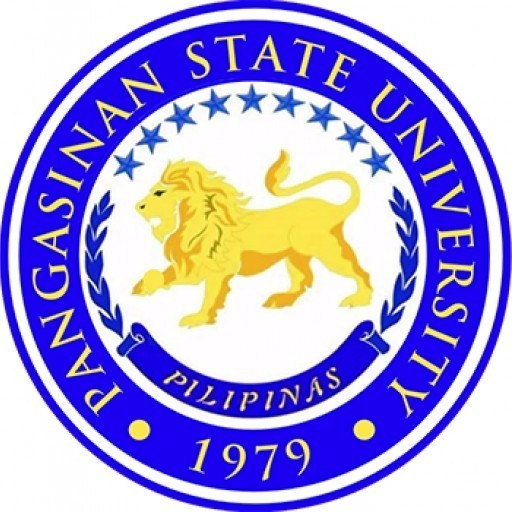The Bachelor of Science in Environmental Science at Saint Mary’s University offers students a comprehensive and interdisciplinary education designed to prepare them for addressing complex environmental challenges. This program combines coursework in biology, chemistry, geology, and environmental policy to provide a well-rounded understanding of natural systems and human impacts. Students will engage in hands-on learning through laboratory experiments, fieldwork, and research projects, fostering practical skills alongside theoretical knowledge. The curriculum emphasizes sustainability, conservation, and environmental management, equipping graduates with the tools needed to develop innovative solutions for environmental issues such as climate change, pollution, and resource depletion. Collaborations with local environmental agencies and participation in community-based projects enable students to gain real-world experience and contribute meaningfully to environmental stewardship. Throughout their studies, students will have opportunities to specialize in areas like marine biology, terrestrial ecology, environmental policy, and sustainable development, aligning their education with their career aspirations. The program also emphasizes critical thinking, data analysis, and effective communication, preparing graduates for careers in government, non-profit organizations, research institutions, or further studies in graduate school. Saint Mary’s University’s dedicated faculty members are committed to fostering a supportive learning environment that encourages curiosity, innovation, and a deep understanding of the interconnectedness of natural and human systems. Graduates of this program will be equipped to make a positive impact on environmental sustainability and to promote responsible stewardship of our planet’s resources for future generations.
Program Content Overview:
The Bachelor of Science in Environmental Science at Saint Mary's University offers a comprehensive curriculum designed to equip students with the essential knowledge and practical skills necessary to address complex environmental issues. The program integrates natural sciences, social sciences, and humanities to provide a multidisciplinary understanding of environmental challenges and solutions. Students will explore foundational subjects such as ecology, geology, chemistry, and physics, alongside courses in environmental policy, economics, and ethics, fostering an interdisciplinary perspective.
Throughout the program, emphasis is placed on developing critical thinking, analytical skills, and scientific research capabilities. Students engage in hands-on learning through laboratory work, field studies, and practical projects that deepen their understanding of ecosystems, environmental monitoring, and sustainable resource management. The program also encourages experiential learning via internships, community-based projects, and collaborations with environmental organizations, preparing graduates for real-world environmental problem-solving.
The curriculum includes specialized courses such as Climate Change Science, Conservation Biology, Environmental Impact Assessment, and Renewable Energy Technologies. These courses emphasize current global environmental issues and sustainable development practices. Students are also involved in seminars, workshops, and interdisciplinary case studies to enhance their communication skills and ability to work effectively in diverse teams.
In addition to core science courses, the program promotes knowledge of environmental legislation and policies, preparing students for careers in environmental consulting, government agencies, nonprofit organizations, and private industry. The program aims to produce environmentally aware professionals who are committed to promoting sustainability and environmental responsibility.
Graduates of the Bachelor of Science in Environmental Science will be equipped with the scientific foundation and practical experiences necessary to pursue advanced studies, certification, or employment in various environmental sectors. The program emphasizes innovation, ethical consideration, and community engagement, aligning with Saint Mary's University's mission to foster socially responsible and environmentally conscious leaders.
Program Requirements for BSc in Environmental Science at Saint Mary's University:
Applicants must have completed secondary education with a strong academic record, particularly in sciences and mathematics. A minimum average grade of 70% or equivalent is required for admission. Prospective students should submit official transcripts from previous educational institutions demonstrating their academic achievements. Additionally, proficiency in English must be demonstrated through standardized tests such as TOEFL (minimum score of 80) or IELTS (minimum band score of 6.0). For international applicants, a completed application form, application fee, and personal statement outlining interest in environmental science are also necessary.
Once admitted, students are required to complete a core curriculum that includes foundational courses in ecology, chemistry, physics, mathematics, and environmental policy. The program mandates the successful completion of at least 120 credit hours, which encompass both theoretical coursework and practical field work. Students must also complete specialized courses such as Geographic Information Systems (GIS), environmental assessment, and renewable energy. Laboratory work and field projects are integral components of the program, providing hands-on experience in real-world environmental issues.
In addition, students are encouraged to participate in internships or cooperative education programs with government agencies, NGOs, or private sectors involved in environmental management and conservation. To graduate, students must achieve a minimum GPA of 2.0 on a 4.0 scale. Capstone projects or thesis work are usually required in the final year to demonstrate comprehensive understanding and research capability in environmental science topics.
Moreover, students are expected to adhere to university academic integrity policies and participate actively in seminars and workshops addressing current environmental challenges. Language proficiency, specialized coursework, practical experience, and research projects collectively constitute the essential components of program completion requirements in the Environmental Science program at Saint Mary's University.
The financing of the Environmental Science program at Saint Mary's University typically includes a combination of tuition fees, scholarships, bursaries, and other financial aid options available to students. Tuition fees are established annually and vary depending on whether students are domestic or international. Domestic students benefit from relatively lower tuition rates, while international students pay higher fees. Saint Mary's University offers several scholarships for incoming and returning students based on academic merit, financial need, or specific criteria related to environmental studies. These scholarships may cover partial or full tuition costs and are awarded through a competitive application process. Bursaries are also available to students facing financial hardship, providing additional financial support to help cover tuition and living expenses.
Besides scholarships and bursaries, students can access government student loans and grants, which are common forms of financial aid for Canadian residents. Saint Mary's University also participates in provincial financial aid programs that support students pursuing degrees in environmental sciences. Work-study opportunities are often provided on campus, allowing students to gain practical experience while earning income that offsets educational costs. The university may also facilitate partnerships with environmental organizations and industry stakeholders, offering internship programs that can sometimes include stipends or remuneration, contributing indirectly to students' finances.
International students are encouraged to seek external scholarships from organizations and government programs in their home countries, as Saint Mary’s University maintains a webpage with resources and guidance on such opportunities. The university’s financial aid office provides counseling and assistance to help students navigate the application processes for all available funding sources. Students are advised to apply early to maximize their chances of securing scholarships or bursaries, as these are limited and highly competitive.
Overall, the financing of the Environmental Science program at Saint Mary's University is designed to be accessible, supporting students through a variety of funding options. The university emphasizes financial planning and provides resources for students to understand their costs and identify potential sources of income or aid. This comprehensive approach helps reduce financial barriers, enabling students to focus on their academic and research pursuits within the environmental sciences field.
Environmental Science at Saint Mary's University offers a comprehensive interdisciplinary program designed to prepare students for addressing complex environmental issues. The curriculum integrates natural sciences, social sciences, and humanities to provide a holistic understanding of environmental challenges and sustainable solutions. Students explore areas such as ecology, conservation biology, climate change, environmental policy, and sustainable development. The program emphasizes practical skills through laboratory work, field studies, and research projects, fostering hands-on experience in data collection, analysis, and environmental monitoring.
Saint Mary's University’s facilities support active learning with modern laboratories, Geographic Information Systems (GIS) technology, and access to local natural parks and protected areas for field research. The program also encourages student engagement through extracurricular activities, environmental clubs, and community outreach programs, which enhance real-world understanding and foster a commitment to environmental stewardship. Graduates of the program often pursue careers in environmental consultancy, conservation organizations, government agencies, and research institutions. They are equipped with the knowledge to assess environmental impacts, develop sustainable strategies, and advocate for environmental policies.
The faculty comprises experienced researchers and practitioners dedicated to mentorship and student success. Admission requirements typically include relevant prior education and a passion for environmental issues. The program may also collaborate with local environmental organizations and government bodies to offer internships and joint research opportunities, providing students with valuable professional networks. Overall, Saint Mary’s University’s Environmental Science program aims to develop environmentally conscious citizens capable of making meaningful contributions to sustainability and ecological preservation.

